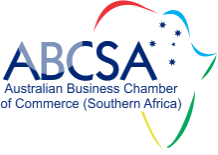A strong economy requires a strong, resilient and sophisticated financial services system which will help ease trade and make it seamless. Additionally, and importantly, the system must have integrity and inspire confidence both domestically and internationally. The Financial Action Task Force (FATF), a global inter-governmental body, that promotes policies and sets international standards for the combating of money laundering, terrorist financing, and the financing of the proliferation of weapons of mass destruction. South Africa is the only African member state of FATF. FATF monitors members’ Anti-Money Laundering and Counter Terrorism Financing practices and policies and for that purpose it has two publications, namely, (i) jurisdictions under “increased monitoring”, these are countries that are actively working with FATF to address identified deficiencies. Another one is the “high risk jurisdictions”. These are countries that are not actively engaging with FATF to address those deficiencies. In 2019 FATF conducted an assessment on South Africa and South Africa performed poorly. This was the period of “State Capture”. I intentionally used inverted commas because there are varying interpretations and understandings of state capture. What is not in dispute and unvaried is the fact that law enforcement agencies were at their weakest. The economy was not doing well either, owing to micro and macro conditions.
South Africa was found to have too many weaknesses in its legal framework. In October 2021 South Africa was put under a one-year observation period, giving the country time to address 67 Recommended Actions. South Africa made significant progress during the observation period, passing two major Amendment Acts in 2022, and strengthening its institutions. A January 2023 assessment of SA’s progress found that South Africa had made significant and positive progress, reducing the 67 Recommended Actions to 8 strategic deficiencies, where more progress is required. As a result, South Africa was greylisted while these are addressed, even as the FATF recognised the significant and positive progress made since 2019. As of October 2024, South Africa complies with 37 of the 40 Recommended Actions.
There has been improved money laundering and counter terrorist financing legislation. Mutual legal assistance requests are adhered to and finalised. The Financial Intelligence Centre Act has been amended too. We keep see more asset forfeiture of assets of proceeds of crime and the identification, seizure and confiscation of proceeds of crime. The Companies Act, 2008, has been amended to now make it compulsory for a company to keep and file with the Company and Intellectual Property Commission (CIPC) a beneficial ownership register. The Trust Property Control Act, 1998, which establishes and governs trusts and their assets, has been amended to also make it mandatory for a trust to keep and file with the Master of the High Court its beneficial ownership register.
It is important for everyone who wishes to do business in any country to know the legal and political environment they will operate in. South Africa should use its G20 presidency to encourage and support other African countries to join the FATF as this may help improve each country’s financial intelligence and financial integrity. It will also help Africa move towards having a united economy and financial system which will be highly needed in order to successfully implement the African Free Continental Trade Agreement and Area.
Alude Xuba
- Alude is an admitted attorney of the High Court of South Africa and specializes in corporate and commercial law, intellectual property law, and fintech law. He is the founder and lead attorney at Xuba & Associates Attorneys inc.

